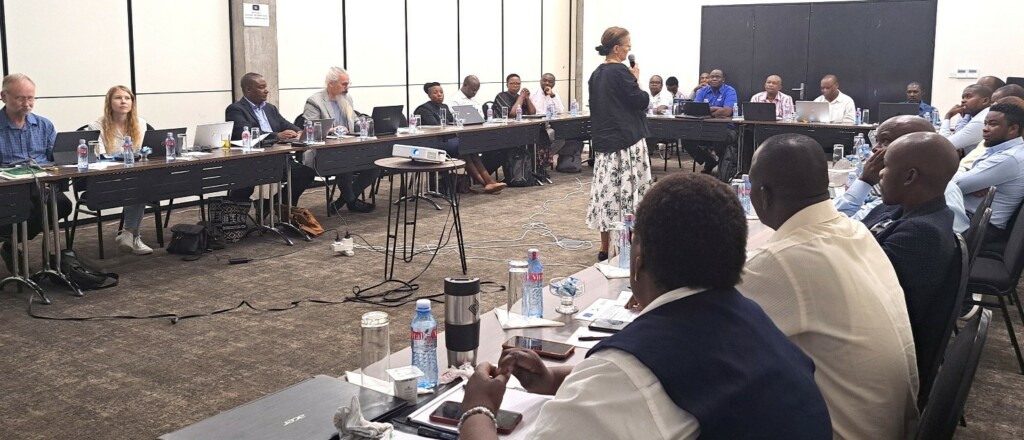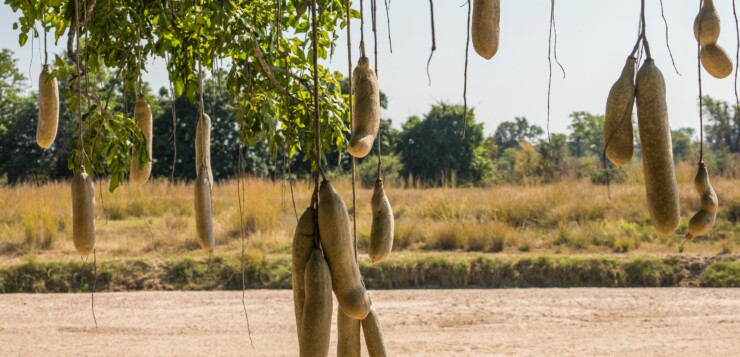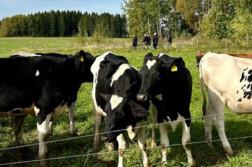During an exceptionally hot October in 2023, which concretized the expected impacts of climate change, a group of educational experts gathered in Lusaka, Zambia to share ideas and insights, network and learn from each other.
The workshop was part of the EU-funded Zambia for Agriculture, Biodiversity and Climate (Z4ABC)-project, led by CIFOR-ICRAF, and implemented in collaboration with the Natural Resources Institute in Finland, Viikki Tropical Resources Institute under the University of Helsinki, and Häme University of Applied Sciences.
The Z4ABC project supports the integrated transformation of selected agriculture, forestry, and wildlife-based value chains to become more sustainable, climate-resilient, and productive – whilst supporting local livelihoods, food security, resilient food systems, and biodiversity protection.
As part of the Z4ABC project, activities together with higher educational institutions and colleges are arranged. The activities are designed to serve two purposes: (1) to mainstream and update climate change mitigation, adaptation and value-chain resilience thinking to universities’ and technical training institutions’ teaching and curricula, and (2) to enhance knowledge dissemination, collaboration and co-creation between educational institutes and other actors in the society.
A workshop was organized in Lusaka to kick-off the activities and to get to know each other. In addition to the HAMK and CIFOR staff, the workshop hosted three Zambian universities (The Copperbelt University, The Mulungushi University, and The University of Zambia) – and two technical training institutions (The Zambia College of Agriculture and the Chipata Trades Training Institute). Due to the scope of the Z4ABC project, the focus of the workshop was on agriculture and agroforestry.

Strengthening the information flows within the Zambian agricultural system
The workshop was privileged to be visited by two governmental representatives: Director of University Education Amos Mumba from the Ministry of Higher Education, and Director of TVET Alex Simumba from the Ministry of Technology and Science. Both guests emphasized the importance of educational institutions in creating relevant knowledge, skills and innovation through research and teaching. The knowledge, skills, and innovation, in turn, are vital for solving current economical, societal and environmental challenges, and pave the way for holistic prosperity for the Zambian agricultural sector and the whole nation.
For the human and intellectual capital within the educational institutions to be fully utilized, the knowledge, skills and innovations generated need to be spread to and among farmers, extension agents and other relevant actors, and vice versa.
The importance of information flows and collaboration within the agricultural sector is emphasized within the EU-initiated concept of Agricultural Knowledge and Innovation Systems (AKIS). The AKIS includes all actors within the agricultural and natural resource sectors; from the producers to rural networks, consumers, national authorities, and other actors, not forgetting the educational institutions. Effective AKIS requires recognition, connectivity, co-creation and sharing between the various actors. Through these, AKIS can support the development, adoption and scaling-up of innovative and feasible solutions and practices, and subsequently contribute to climate change mitigation and adaption, sustainable farming and natural resource management practices, and improved livelihoods and economy.
The Zambian educational institutions can become the driving force within the ZAKIS, i.e., Zambian Agriculture and Innovation Systems. Through the Z4ABC project, HAMK together with the project partners is working with the Zambian educational institutions to strengthen the ZAKIS, and subsequently accelerate the utilization and application of the marvelous capacities and knowledge existing in all levels of the Zambian agricultural systems and the whole society.
Authors
Satu Määttänen, Research assistant in HAMK Bio Research Unit. HAMK Africa Team member.
Lydia Nema Amanzi, Communications Administrator at CIFOR-ICRAF based in Lusaka, Zambia.





Discussion1 kommentti
Excellent write up